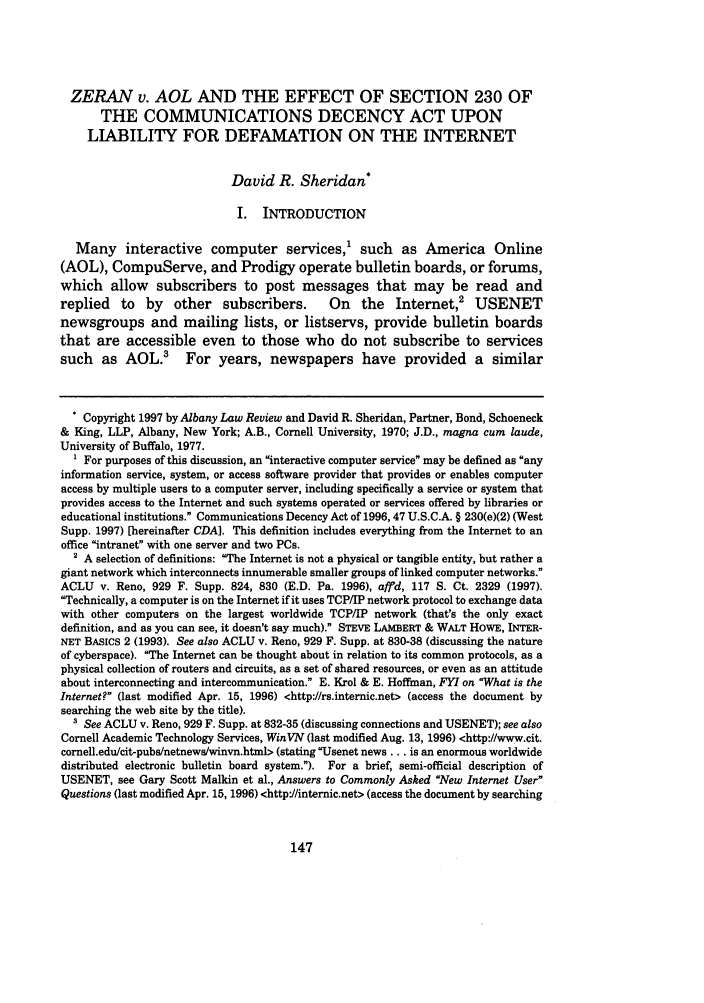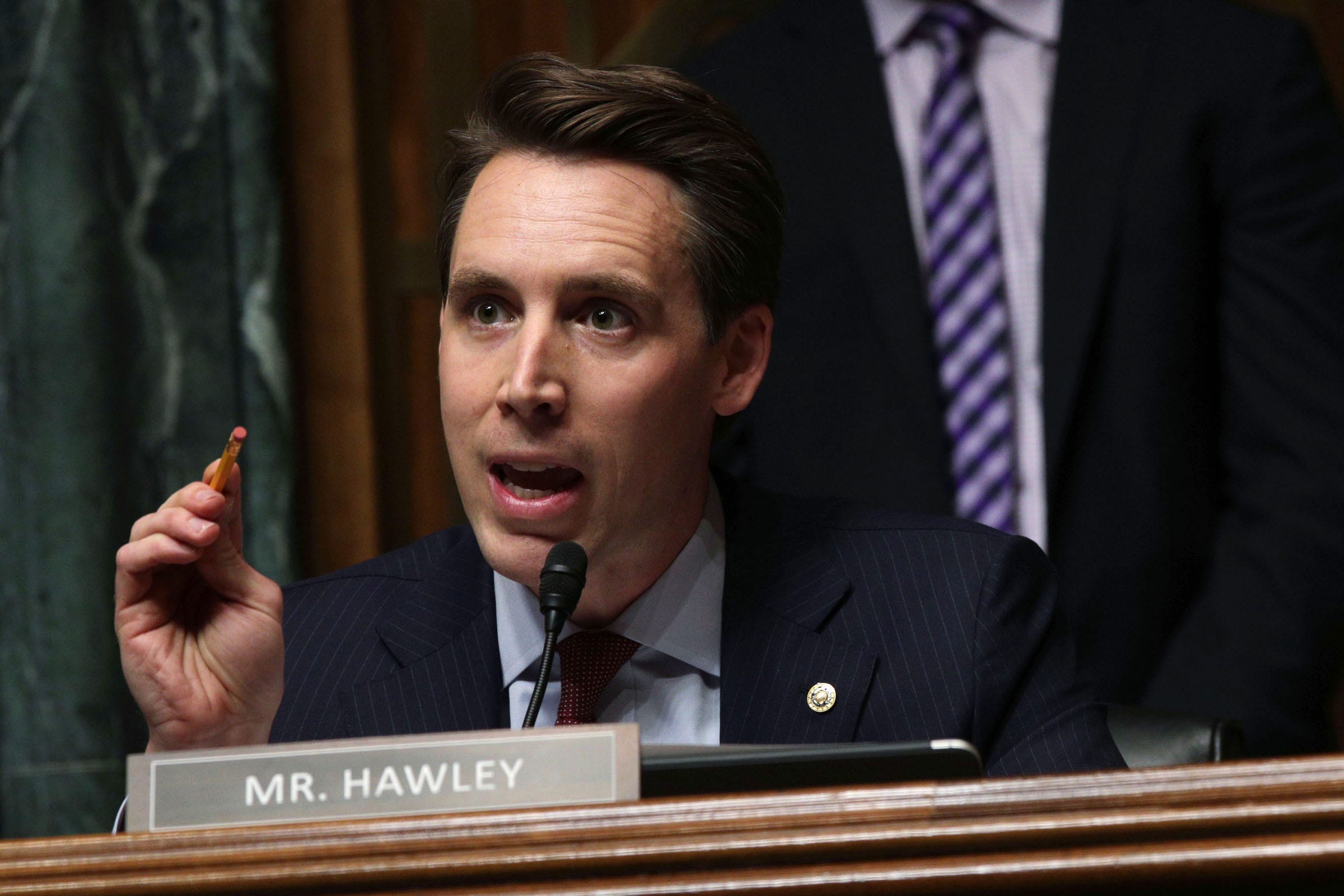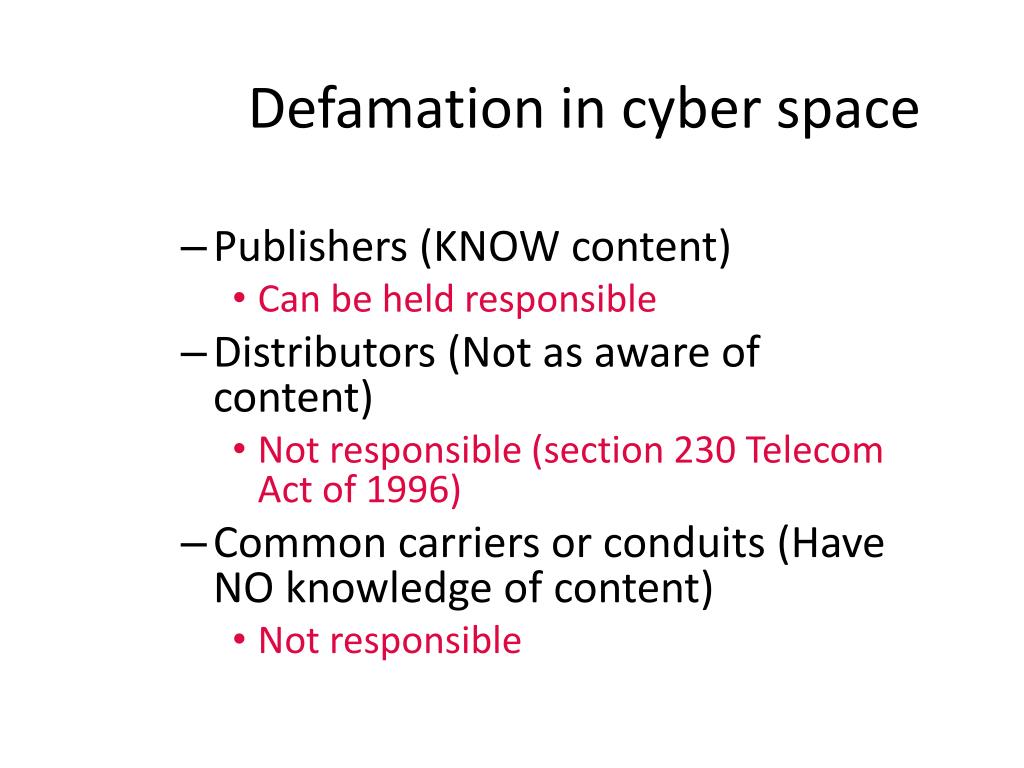Section 230 Defamation

Has been lauded as the most important law protecting internet speech and called perhaps the most influential law to protect the kind of innovation that has allowed the internet to thrive 2 2.
Section 230 defamation. Section 230 of the communications decency act 47 u s c. This post is about a new type of defamation lawsuit which can fairly be described as classification marketing defamation. 230 a provision of the communication decency act tucked inside the communications decency act cda of 1996 is one of the most valuable tools for protecting freedom of expression and innovation on the internet. This allows them to operate and.
This means that as long as a website does not create the content itself it cannot be held liable for the republication of defamatory or invasive statements. Section 230 makes internet service providers like google and facebook immune from lawsuits based on claims related to content published by third parties using their service. State attorneys want to change section 230 a group of state attorneys want to change a major internet law. Section 230 of the communications decency act of 1996 1 1.
It is important to be aware that section 230 protects interactive computer service providers from more than defamation. Section 230 states that a provider of an interactive computer service will not be treated as a speaker or publisher of any information provided by an information content provider. Section 230 makes internet platforms and other internet speakers immune from liability for material that s posted by others congress enacted 47 u s c. It has been asserted as a defense to claims of intentional infliction of emotional distress negligent misrepresentation tortious interference with business expectancy breach of contract unfair competition and even civil rights violations.
Section 230 is a piece of internet legislation in the united states passed into law as part of the communications decency act cda of 1996 a common name for title v of the telecommunications act of 1996 formally codified as section 230 of the communications act of 1934 at 47 u s c. Most fundamentally section 230 provides immunity to social media companies like facebook and twitter twtr 0 3 against being sued over the content on their site.
















